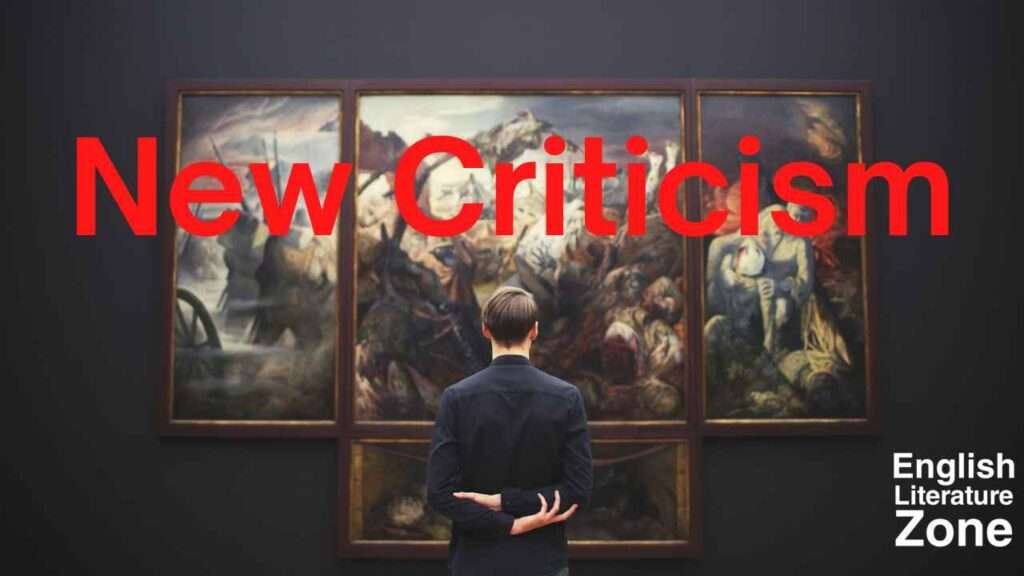
Introduction
I. A. Richards is the most influential Critic in twentieth-century Anglo-American Criticism. He along with T. S. Eliot regarded as the founder or father of New Criticism. He was born in 1893. He was a student of Moral Science at Cambridge University and his experience as a teacher proved very fruitful. Among the modern I. A. Richards is the only critic who has formulated a systematic and complete theory of literary art. The study of the text on which new criticism is based was started by no another than Richards himself. All new critics, whether it is John Crow Ranson, Cleanth Brooks, William K Wimsatt, and Robert Penn Warren are much influenced by the work of Ivor Armstrong Richards.
As A Critic Works
As a critic, I. A. Richards is remembered for five important books, which he wrote either independently or in collaboration with others. Among such books include – The Foundation Of Aesthetics, The Meaning Of Meaning, The Principles of Literary Criticism, Practical Criticism, and Coleridge On Imagination.
The first book The Foundation Of Aesthetics is published in 1922. It has been written in collaboration with two friends Ogden and James Wood. In this book, Richard tries to give his analysis of the concept of Aesthetic Beauty.
His second book entitled The Meaning of Meaning was published in 1923. Richard wrote this book too in collaboration with Ogden. In this book, Richard distinguishes between the symbolic use of language in Science and its emotive use in poetry.
Richard’s third book The Principles of Literary Criticism is the most outstanding work of English Criticism. This book came out in 1924 and created almost a revolution in the field of English Literary Criticism. In this book I. A. Richard formulated a systematic and complete theory of poetry. He also explains his psychological theory of value and explores the emotive language of Poetry.
Richard’s Practical Criticism was published in 1929 and it is based on his lecture room experiments conducted in Cambridge. According to him a poet writes to communicate and language is the means of that communication language consists of words so the study of words is significant to understand the meaning.
The meaning of words depends on:
◽ Sense
◽ Feeling
◽ Tone
◽ Intention
Sense
By Sense, it meant something that is communicated by the plain literal meaning of the words.
Feeling
Feeling refers to emotions, emotional attitudes, desire, and will pleasure. Words express feelings.
Tone
Tone means the writer’s attitude towards his audience. The writer chooses his words and arranges them keeping in mind the taste of his readers.
Intention
Speaker intention or purpose modifies the speech. It is the effects that one tries to produce.
“The Sound Of a word has
much to do with the feeling
it evokes.”
According to I. A. Richards, There are three types of Good Critic:
Firstly, A Critic should be a learned person. He has strong control over words and the effect they produce.
Secondly, he must be a sound judge of values and have adequate knowledge of psychology.
Thirdly, he must be able to distinguish experiences from one another.
I. A. Richards himself possesses these qualities. Richard did a great service to literary criticism by linking it with psychology.
His later publication included Coleridge On Imagination published in 1934. I. A. Richard gave us six distinct senses of the word Imagination.
- Production of Image.
- The use of figurative Language.
- The Narrower sense.
- Inventiveness imagination.
- The Scientific imagination.
- The Sense of musical delight.
In simpler form, I. A. Richards says that a poet arranges his experiences and lays them in a style that is not possible for an ordinary person. So the poet always does it better.
Conclusion
Thus, we can say that Richard has done a great service to literary criticism by linking it with psychology. A number of scholars have emerged as critics and interpreted literature in order to help a common reader. But I. A. Richards is considered the pioneer of them. His contribution to the field of Criticism is incomparable and his works influenced a lot of modern critics.




